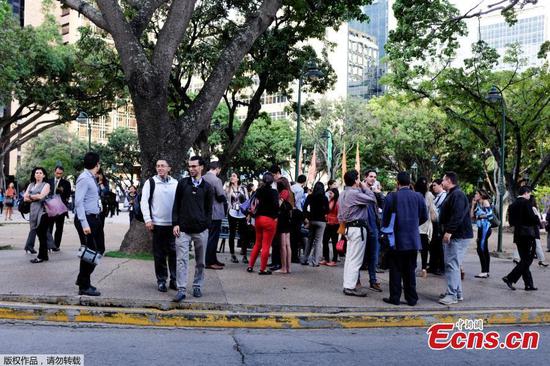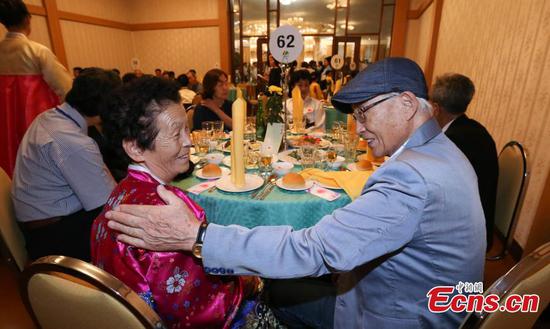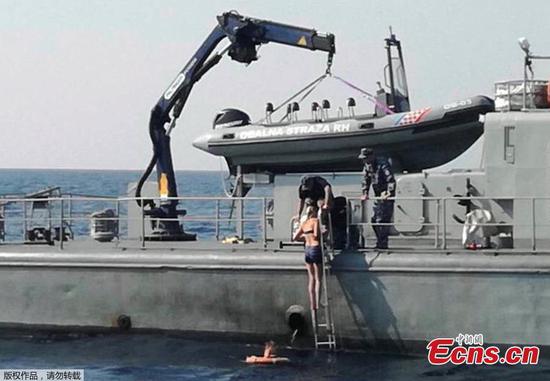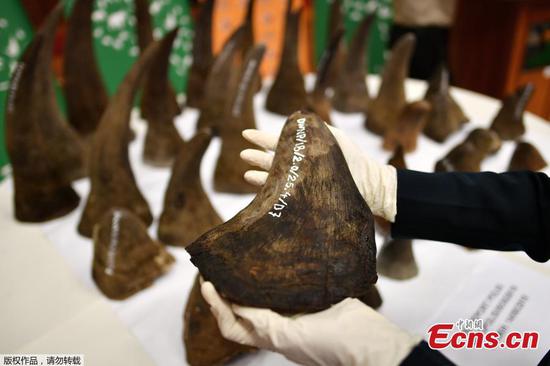China has extended good faith in settling its trade dispute with the United States. As Vice Minister of Commerce and Deputy China International Trade Representative Wang Shouwen accepted the U.S. invitation and led a delegation here for resumed talks, the ball is in Washington's court to make this dialogue not another exercise in futility.
The two-day conversation merits applause and aspiration as the world's two largest economies came back to the table after over two months' escalation of confrontation. Its implication of a mutual desire to manage the current divergences and curb further spillovers into the global growth and financial stability is a matter of course.
Yet it always takes two to tango. Any fruit that might come from this round of exchange requires bonafide interactions and stand-in-your-shoes thinking on both sides. This is by no means a one-way street for China.
Although the U.S. delivery of invitation to China has shown its readiness for negotiating deals, the soul of "the art of the deal" lies more on ungrudging concession than on forced bargain. The maximum pressure approach featuring my-way-or-no-way logic and zero-sum mentality has proved infructuous to China, and risks a renewed no-win prospect.
Previous trade talks between the two countries have offered abundant lessons for both to circumvent misunderstanding and misjudgment while engaging in this hard-won opportunity for negotiations.
Among them is the requisite of a more sensible approach on the U.S. side that highlights mutual understanding rather than one-sided pressuring. Any mutually acceptable results of this round of talks must depend on two-way efforts, with two parties meeting each other halfway.
Also, as the saying goes, Rome was not built overnight. The different phases of development in China and the United States make the settlement of issues such as market access unattainable at one stroke; yet with vast areas of overlapping interests, the two sides should be more patient and seek common ground while putting aside differences.
The success of the discussions also requires a mutually recognized priority list of problems. However, Washington remains nubilous in this regard, given that the U.S. authorities such as the White House, the Treasury Department and the Office of the United States Trade Representative have been at cross purposes regarding their priorities with China.
As U.S. President Donald Trump said in his book on making deals, "the point is that you can't be too greedy." The two sides would hence be advisable to define their top concerns in this round of talks and outline a roadmap, in a bid to find a way out of the current impasse and towards the final settlement of the issues.
Moreover, since the significance of trustworthiness is second to none in negotiations, the U.S. side should be ready to re-engage in its commitments than renege on them, if it really means it. Any fruits of the bilateral dialogue will once against come to naught if Washington goes back on its word as it did before. Credibility for a state plays the role of character for a human being, and it's in a country's interests to keep faith with others.
While mulling its trade strategy on China, Washington cannot overlook the cries of U.S. industries affected or to be affected by its current confrontation with China. Warns of U.S. tactics' backfire effects, such as the disruption of global supply chain, the disability of U.S. private sector, job losses, and damage to the interests of consumers, have dominated the ongoing six-day public hearings process, which solicits business and industrial comments on the proposed tariffs on Chinese imports worth 200 billion U.S. dollars.
In fact, unilateral tariff tactic has never made its way in the U.S. history. Spillovers of a trade faceoff with the world's second largest economy will from each and every aspect be more biting than Washington could ever imagine.
Washington's huff-and-puff bluster and now-or-never ultimatum will only cut short the odd of a productive dialogue. The United States should rationally review the China-U.S. trade relations, look for a win-win solution to the dispute through equal negotiation with China, and jointly safeguard the open and rules-based multilateral trade system.











